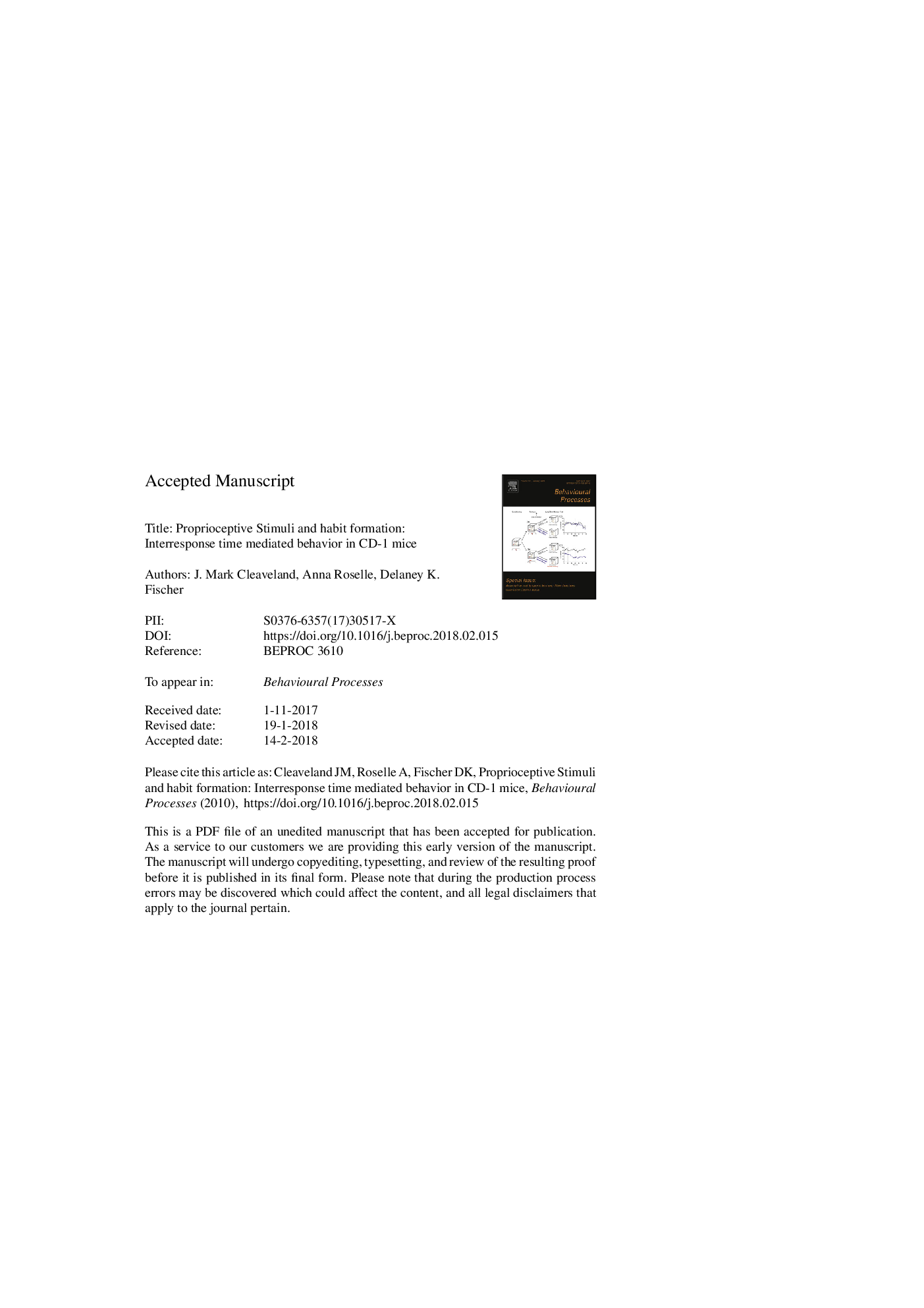| کد مقاله | کد نشریه | سال انتشار | مقاله انگلیسی | نسخه تمام متن |
|---|---|---|---|---|
| 8496983 | 1553131 | 2018 | 35 صفحه PDF | دانلود رایگان |
عنوان انگلیسی مقاله ISI
Proprioceptive stimuli and habit formation: Interresponse time mediated behavior in CD-1 mice
دانلود مقاله + سفارش ترجمه
دانلود مقاله ISI انگلیسی
رایگان برای ایرانیان
موضوعات مرتبط
علوم زیستی و بیوفناوری
علوم کشاورزی و بیولوژیک
علوم دامی و جانورشناسی
پیش نمایش صفحه اول مقاله

چکیده انگلیسی
The consolidation of behavioral sequences into relatively ballistic habits is thought to involve the formation of stimulus - response associations. Typically, the stimuli in these associations are assumed to be exteroceptive, i.e., external to the organism. However, responses, themselves, also possess stimulus properties that can mediate behavior. Indeed, these “proprioceptive cues” have long been hypothesized to underlie habit formation (Hull, 1934a, 1934b). One such stimulus involves the time durations between responses - a stimulus termed interresponse time (IRT). We hypothesize that IRTs can come to serve as stimuli that differentially control response elements during habit formation. To examine this hypothesis we report on two experiments that asked whether CD-1 mice utilize IRTs to structure behavior in a two-choice environment. In experiment 1, eight mice were exposed to a free-operant concurrent variable-interval (VI) 30-s VI 60-s reinforcement schedule. We found that switch and stay responses were differentially correlated with IRT durations. In Experiment 2 we directly and differentially reinforced stay/switch responses based on IRT durations in a two-lever procedure. For four of the subjects, the probability of receiving reinforcement after switch responses was proportional to IRT duration. For five of the subjects, these reinforcement probabilities were inversely proportional to IRT duration. Regardless, all of our subjects learned to emit IRT-mediated switching behavior that matched the reinforcement contingencies. Together, Experiments 1 and 2 provide the first evidence of which we are aware that IRTs can come to control sequential choice behavior in mice.
ناشر
Database: Elsevier - ScienceDirect (ساینس دایرکت)
Journal: Behavioural Processes - Volume 150, May 2018, Pages 29-35
Journal: Behavioural Processes - Volume 150, May 2018, Pages 29-35
نویسندگان
J. Mark Cleaveland, Anna Roselle, Delaney K. Fischer,